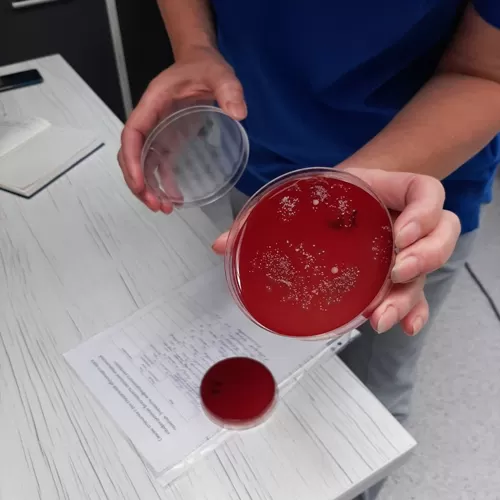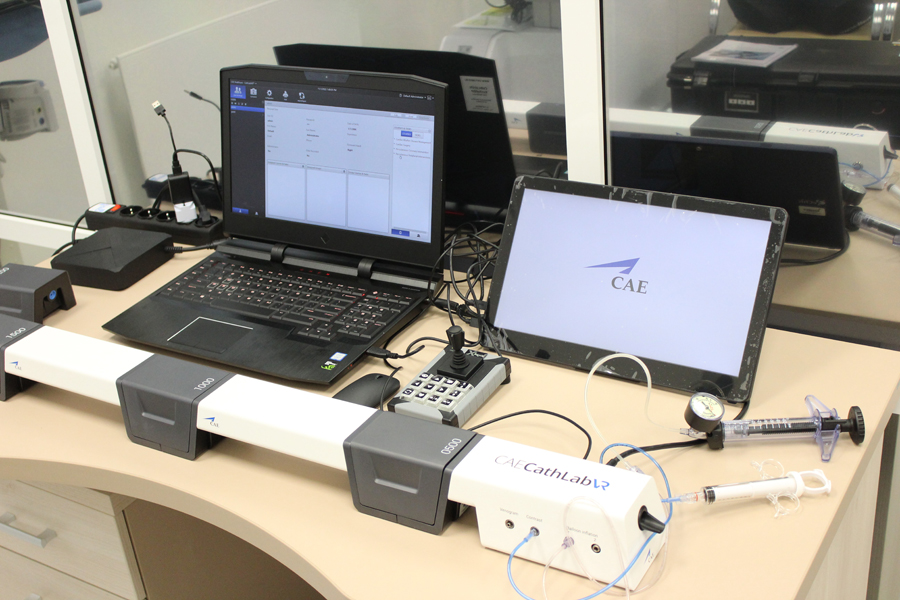
1. Continuing education for X-ray endovascular surgeons: 'Endovascular Surgery of the Cardiovascular System' and 'Endovascular Surgery in Arrhythmology.' For the first time, training is conducted using the unique and only virtual angiography simulator in the country, called 'KatLabVR,' with the utilization of a heart phantom and major blood vessels to practice interventional skills using 'CorView 3DR.'
Training physicians as endovascular surgeons in the mentioned programs will enable them to acquire all the necessary manual skills to work in regional centers and regional support hospitals for Acute Coronary Syndrome (ACS) in the regional support clinical centers, thereby increasing the accessibility of endovascular surgery for the population of the Republic of Belarus. Training methods include the analysis of key theoretical aspects of endovascular surgery of the cardiovascular system, rhythm disorders, and the heart's conduction system, as well as its safety. Practical sessions involve the analysis of endovascular surgery in various sections of the cardiovascular system for ischemic heart disease (IHD), different rhythm disorders of the heart using advanced simulator trainers and live operations from the operating center with two-way audio-video communication with the instructor acting as the operator. Clinical case studies will also be examined. The number of participants per group is a minimum of 4 individuals. The cost per participant is 927.29. The duration of the training is 5 days (40 academic hours).

2. Advanced Training for Gastrointestinal Endoscopists: Operative Endoscopy of GI Neoplasms «Operative Endoscopy of GI Neoplasms». Currently, operative endoscopic techniques for the removal of gastrointestinal (GI) neoplasms, such as cold snare polypectomy, hot snare polypectomy, endoscopic mucosal resection (EMR), and endoscopic submucosal dissection (ESD), are actively developing and being implemented in clinical practice. Each method has its standardized requirements in technical and methodological aspects, including the mastery of specific manual skills by the endoscopist. Therefore, it is highly relevant for physicians to have the opportunity to learn and practice operative endoscopy skills without causing harm to the patient. This issue is addressed through training on virtual endoscopic simulators and biological models. Such training methods allow for the mastery of standardized endoscopic techniques for removing GI lesions without risking patient safety. They provide the chance to repeat the procedures multiple times to achieve proficiency in the methodology without the risk of actual complications. Under the guidance of an instructor in real-time, this training method involves reviewing and correcting errors that arise, while objectively assessing the level of proficiency attained in performing the manipulations.The use of biological models in training creates conditions that closely resemble real-world scenarios. The number of participants in each group is limited to four individuals. The cost per participant is $783.88. The training duration is 5 days, equivalent to 40 academic hours.

3. Training course "Infection Safety in Medical Care, Elements of Infection Control for Specialist Physicians and Nurses."
The objective of the training course is to provide professional development for specialist physicians (infectious disease specialists, intensivists, internists, pulmonologists, surgeons, epidemiologists, etc.) as well as middle-level medical staff on the most relevant theoretical and practical-methodological aspects of infection control in healthcare facilities.
The goals of the training course include acquiring, expanding, and systematizing knowledge about the infection control system, modern methods and means of disinfection and sterilization, approaches to developing schemes for antibacterial perioperative prophylaxis during surgical interventions, and the development of optimal schemes for antibacterial therapy for patients with postoperative complications.
The duration of the training course is 3 days (24 academic hours), with a minimum of 4 participants per group. The cost per participant is 261.55.
The sessions are conducted by highly qualified specialists from the Medical Center for Infection Control. Upon completion of the course, participants will receive training and education documents of the established format and a certificate.

We invite all interested individuals to attend the training!
Discover new knowledge! Learn in a new way!



